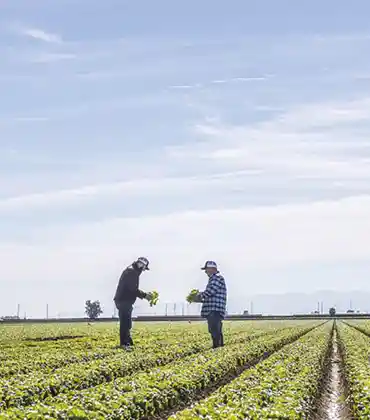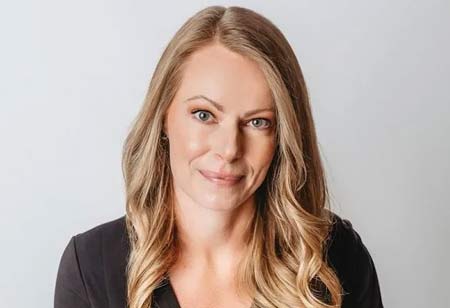THANK YOU FOR SUBSCRIBING
By Violeta Costa, Global Sustainability Manager, GB Foods
Tackling Food Waste: A Global Ethic Imperative
By Laurence COX, Sustainability Manager (UK Lead), Carlsberg Marston’s Brewing Company
An Artful Insight into Carlsberg Marston's Sustainable...
By Kasper Garnell, Brand Director, Joe & The Juice
How Joe & The Juice Are Taking App Ordering To The Next...
By Michael Ciepiela, Director, Food Safety and Quality Assurance, Taylor Farms
No Standard, No Problem -Setting Limits on Processes

Leading Sustainably Through Ground-Level Realities and Evolving Trends
Julie Owst, Head of Sustainability, Bidfood UK

 Julie Owst, Head of Sustainability, Bidfood UK
Julie Owst, Head of Sustainability, Bidfood UKJulie Owst moved into sustainability role in 2019, after working in logistics and HR. It wasn’t the most obvious route, but it’s the one that’s given her a solid foundation. Logistics taught her to think commercially and move quickly, while her HR background helped her understand the importance of culture and leadership which was a key when it comes to making sustainability stick.
She has completed MSc in Sustainability, equipping her with a more strategic, data-driven approach to the subject. For Owst, it’s about being able to work across different parts of the business, connect with people and adapt her style to get things done. She knows that sustainability roles don’t usually come with lots of formal authority, so building relationships, influencing through trust and sticking with it really matter.
Through this article, Owst delves into how the progress in sustainability comes from strong governance, practical innovation and resilient leadership that can influence and drive change across the business.
Governance with Sustainability: Board-level Backing and Real Accountability Drive Action.
Strong governance underpins everything and is so underrated, it’s not ‘sexy’ but it ensures clear accountabilities and crucially, identifies and manages risk. Our governance structure for sustainability entails clear board-level sponsorship for each pillar of our sustainability programme; the board have that much-needed access to resources and hierarchical power that means (to put it bluntly) that stuff just gets done. In terms of ethics, we have many stakeholders that hold us to account and steer prioritisation—our own employees, customers, NGOs, industry working groups and more. We’re also make sure our external reporting is independently verified, so our customers can trust what we say.
Positive Force for Change: Engaging Consumers and Navigating Food Sourcing
I’d say there are three main challenges:
• The elusive ‘green consumer’ - In other words, the consumers who would say that sustainability is really important to them in their purchasing, but this often doesn’t translate through into reality. There’s no easy answer for tackling this. We do our best to educate our customers on the issues (for example via our factsheets and we create blogs and podcasts to talk about what we’re doing to drive change. I also try to change the language I use. I recently suggested in a blog that we drop the word ‘sustainability’ in favour of talking about what we need for a better future.
“In terms of ethics, we have many stakeholders that hold us to account and steer prioritisation—our own employees, customers, NGOs, industry working groups and more. We’re also make sure our external reporting is independently verified, so our customers can trust what we say”
• ‘Anonymous food’ – By this I mean that in the foodservice sector, the food served to the consumer doesn’t benefit from labels (in the same way that retail does). So it’s really challenging for our customers to evidence responsible purchasing, they have to rely on wider brand communications and marketing.
• We serve a very broad customer base – With very differing levels of commitment to sustainability, so developing responsible sourcing policies is rather like trying to find one size that fits all, a policy needs to address the issue but to do so in a way that is commercially and practically feasible for our suppliers. One way in which we do this is by working with NGOs (for example, Efeca for soya) to understand the supply chain and what level of ambition is feasible, liaising with suppliers to outline our ambition and understand their ability to match it and then creating our policy and giving suppliers a timeframe in which to fully align.
Incorporating ESG strategy: Tech Solutions for Carbon Footprint and Data Quality
We’re partnering with CarbonCloud, providers of a SaaS tool that gives us the capability to provide customers product carbon-footprint data for every product in our range and to engage suppliers in the all-important task of improving data quality in this area, so that we can measure and reduce the carbon impact of the food we sell. There’s huge potential for tech expansion in food and agriculture that we’re seeing the development of tools—for monitoring deforestation, soil quality, carbon sequestration, land use change and more—to meet the demand for better data on food provenance.
Key Advice for Future Leaders: Build Influence and Collaborate Smartly
There are lots of fairly predictable answers to this question, but my top tips would be:
1. Work out how best to get ‘invited to the table.’ In sustainability, we often have to fight for a voice, struggle to secure budgets and survive with minimal resource. But you don’t need to be a victim of circumstance, no one but yourself is likely to change this! Devote some time working out how you add value, create your own metrics, seek stakeholder testimonials and position your function as the value-adding entity that you already are. Identify others that already see this and amplify their voices.
2. Leverage other teams to achieve your objectives – Learn to speak their language to harness their motivation for change. Operating business in a more sustainable way helps manage and mitigate cost and risk (finance), enhances brand (marketing/PR), enhances the proposition to your customers and may open up new markets (sales), helps anticipate regulatory changes (legal), can drive greater resilience (supply chain) etc.
3. Finally, recognise the risk of burnout – This is a tough gig! The earlier you recognise your limitations and what is or isn’t within your gift to influence, the better. There will always be more that needs to be done, so make time for things that help you recalibrate—whether it be sport, socialising, being in nature, whatever! And try and find like-minded people to feel supported, as this can be a lonely role.
Read Also















